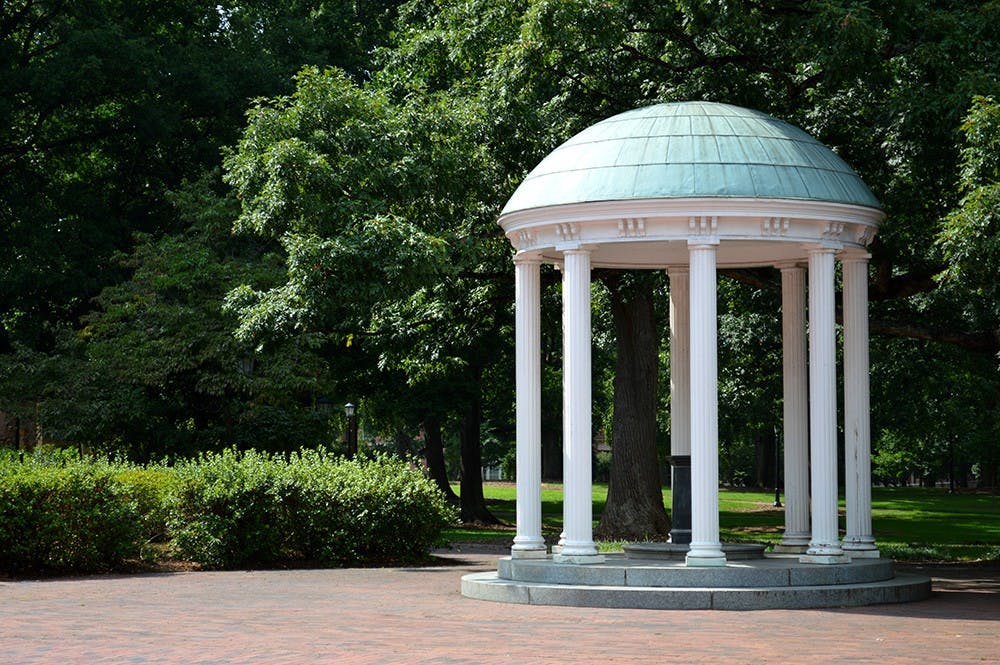The University of North Carolina-Chapel Hill recently announced the results of an independent investigation into academic fraud at the university. The highly-publicized scandal has affected roughly 3,100 students in the past two decades.
UNC President Tom Ross and Chancellor Carol Folt charged independent attorney Kenneth Wainstein last February with conducting a comprehensive investigation regarding an irregular class scheme that went on for almost two decades at Chapel Hill. The scheme allowed thousands of students to receive credit for courses without actually attending class, and often awarded them high grades when the students had not actually completed work. Wainstein is a partner with Cadwalader, Wickersham & Taft LLP.
“Between 1993 and 2011, [Prof. Debby] Crowder and [Dept. Chair Julius] Nyang’oro developed and ran a ‘shadow curriculum’ within the AFAM [African and Afro-American Studies] Department that provided students with academically flawed instruction through the offering of ‘paper classes,’” the Wainstein report reads. “These were classes that involved no interaction with a faculty member, required no class attendance or course work other than a single paper, and resulted in consistently high grades that Crowder awarded without reading the papers or otherwise evaluating their true quality.”
According to the report, these paper classes were particularly popular among student athletes, especially those involved in “revenue” sports such as football and men’s basketball.
University President Teresa Sullivan said in a September interview that there is a process in place to help avoid similar situations at the University. Two faculty members review all courses in which student athletes are enrolled each semester to make sure these courses comply with fair academic standards.
At UNC, student athletes were referred to the paper classes by academic counselors in the Academic Support Program for Student-Athletes. Counselors were “always under pressure to maintain student athlete eligibility and saw these classes — and their artificially high grades — as key to helping academically-challenged student athletes remain eligible and on the playing field,” according to the Wainstein report.
Academic support and advising programs for athletes are common at both public and private universities. The University has a similar program to help student athletes succeed.
In total, roughly 3,100 out of a total of 97,600 undergraduate students enrolled at Chapel Hill in that time period were involved in a paper class, 47.6 percent of whom were student athletes.
A UNC press release further stated that various personnel at the university were aware of red flags in these courses but did not ask questions, constituting a failure of meaningful oversight.
“Mr. Wainstein has found that the wrongdoing at Carolina lasted much longer and affected more students than previously known,” Folt said in a press release. “The bad actions of a few and the inaction of others failed the university’s students, faculty and alumni, and undermined the institution as a whole.”
In light of these findings, significant reforms are being implemented at Chapel Hill.
“We are taking responsibility for the past, we have apologized, and we want to ensure that something like this will never happen again at UNC-Chapel Hill,” UNC Communications Specialist Helen Buchanan said. “We want to reaffirm our commitment to our students — they are one of many aspects that make our university among the best in the world.”
Some of the reforms include launching a new public records website to enhance accountability, adding faculty members to a group that reviews student athlete eligibility, establishing a working group for individuals to raise academic concerns, and conducting an institution-wide policy and procedure audit to allow the university to identify redundancies. The university will also evaluate and review every unit and department. The immediate reaction also includes a plan to stabilize the Department of African, African American and Diaspora Studies.
The press release said the university will also take fact-based personnel actions, including the termination of nine university employees.
“I apologize first to the students who entrusted us with their education and took these courses," Folt said. "You deserved so much better from your university, and we will do everything we can to make it right. I also want to apologize to the Carolina community — you have been hurt both directly and indirectly by this wrongdoing, even though you had no knowledge or responsibility for it, and many of you were not even here when most or all of it occurred.”







